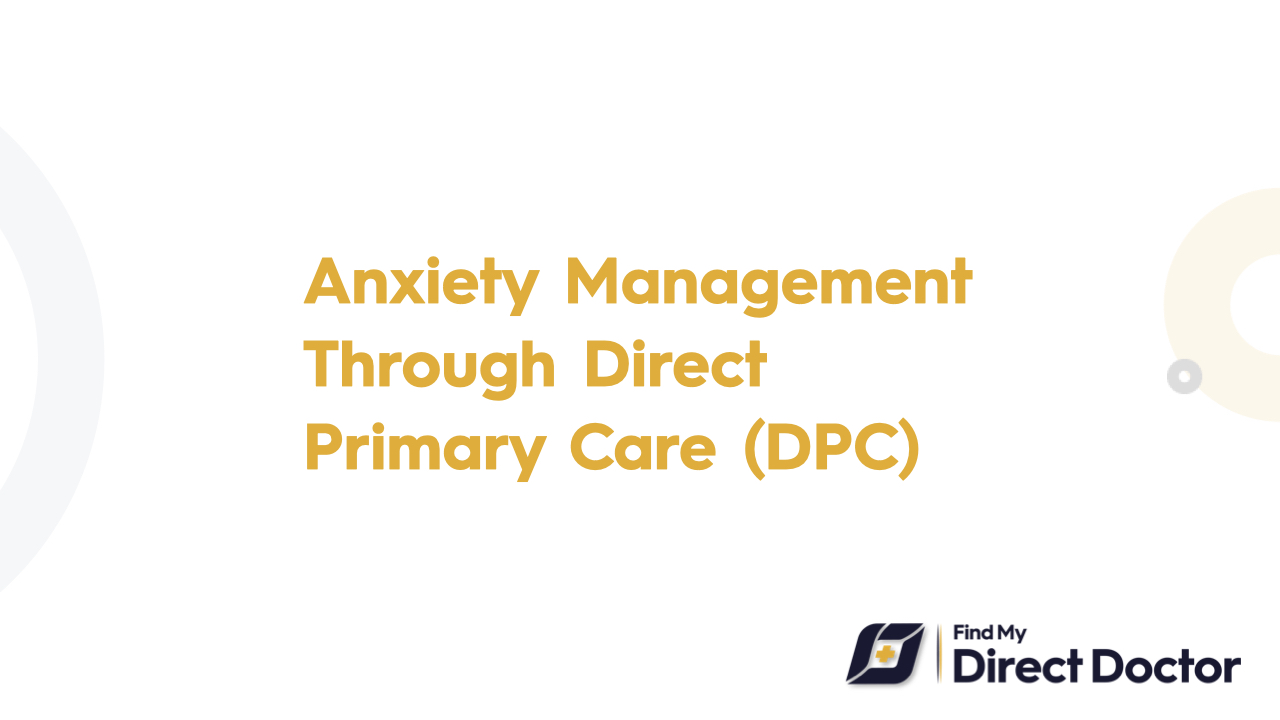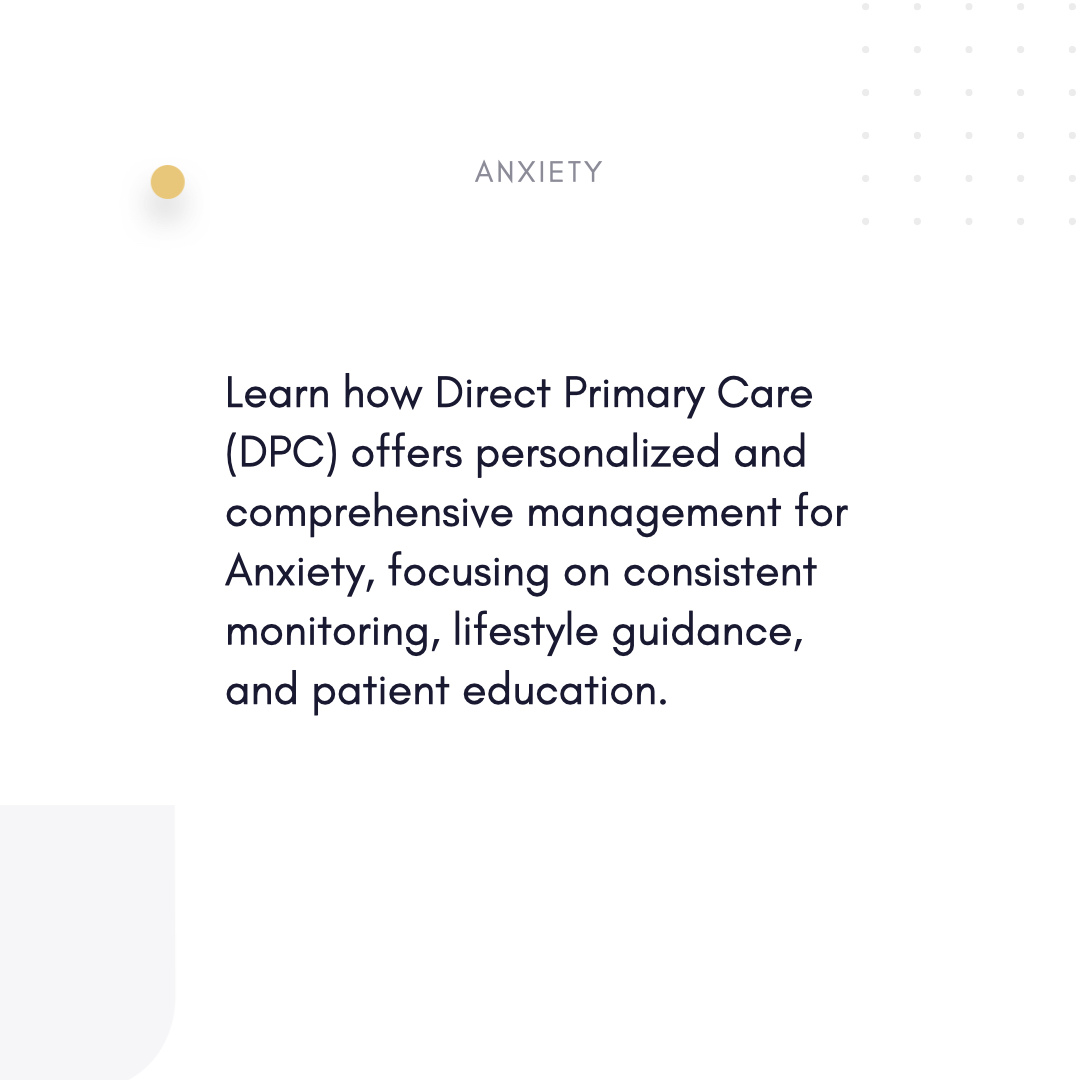Anxiety and Direct Primary Care (DPC): Personalized, Accessible Care for Lasting Relief
Affecting millions of people worldwide, anxiety disorders are defined by constant worry, fear, and physical symptoms including fast heartbeat or tiredness. Effective management of anxiety calls for combinations of medical, therapeutic, and lifestyle changes. By stressing accessibility, continuity, and individualized strategies to help patients regain control of their mental health, Direct Primary Care (DPC) changes anxiety treatment.

DPC Improves Anxiety Control
- DPC providers schedule long sessions for in-depth conversations on triggers, symptoms, and lifestyle choices. This is consistent with the American College of Physicians' (ACP) focus on patient-centered care, which builds confidence and guarantees that no issue is missed.
- Quick access to care:
- Same-day or next-day visits help lower wait times—critical during panic episodes or anxiety flare-ups.
- Telehealth choices offer quick help right from home.
- Cooperation-Based Care Method:
- Easily combine pharmacotherapy, psychotherapy, and lifestyle changes.
- DPC doctors follow evidence-based approaches including mindfulness training or cognitive-behavioral therapy (CBT) in tandem with therapists, psychiatrists, and case managers.
- Track physical health (e.g., thyroid function, vitamin deficits) alongside mental well-being to address underlying causes of anxiety.
DPC's Advantages for Anxiety Patients
- Continuous Medical Treatment: Establishing trust by a consistent relationship with one provider is crucial for addressing delicate problems and honing long-term plans.
- Affordable membership dues sometimes include discounted drugs, labs, and therapy sessions, so lowering financial stress—a common anxiety trigger.
- Eliminate conventional barriers including long wait times and insurance hassles so that timely interventions are guaranteed.
- Flexible Treatment Schedules:
- Management of Medication: Based on patient response, change SNRIs, SSRIs, or benzodiazepines.
- Customized diet, improved sleep hygiene, and workout schedule changes in lifestyle.
- Alternative Therapies: Referrals for mindfulness apps, yoga, or acupuncture.
DPC Customized Anxiety Management
- Use GAD-7 questionnaires and other instruments to pinpoint triggers—such as trauma or job stress—and design focused plans.
- Create reasonable benchmarks for yourself, such changing your sleeping schedule or progressively facing anxiety-inducing events.
- To build the patient's network, teach caregivers supportive strategies and include them into treatment plans.
- Tools Based on Technology:
- Use apps for telehealth checks, meditation, or mood tracking to keep involved between visits.
Why DPC Stands Out for Management of Anxiety
- Evidence-based flexibility: Combining case management and psychiatric consultation, collaborative-care models shown successful in primary care environments.
- Preventive Strategies Active: Frequent visits help identify early indicators of relapse and modify treatments before symptoms worsen.
- Lowered stigma: A judgment-free environment promotes honesty, which is essential for patients reluctant to get treatment.
Real-Life Influence
- Emma, 34: Avoiding ER visits, DPC-coordinated CBT and lifestyle changes help reduce panic episodes.
- James, 28: Through DPC's wholesale pharmacy relationships, saved 40% on anti-anxiety meds.
DPC Changes Anxiety Results
DPC holistically addresses anxiety by combining ACP-recommended patient-centered care with a cooperative, flexible approach. Emphasizing continuity, accessibility, and personalized planning, the model helps patients—without the constraints of conventional healthcare—to develop resilience and recover peace of mind.






